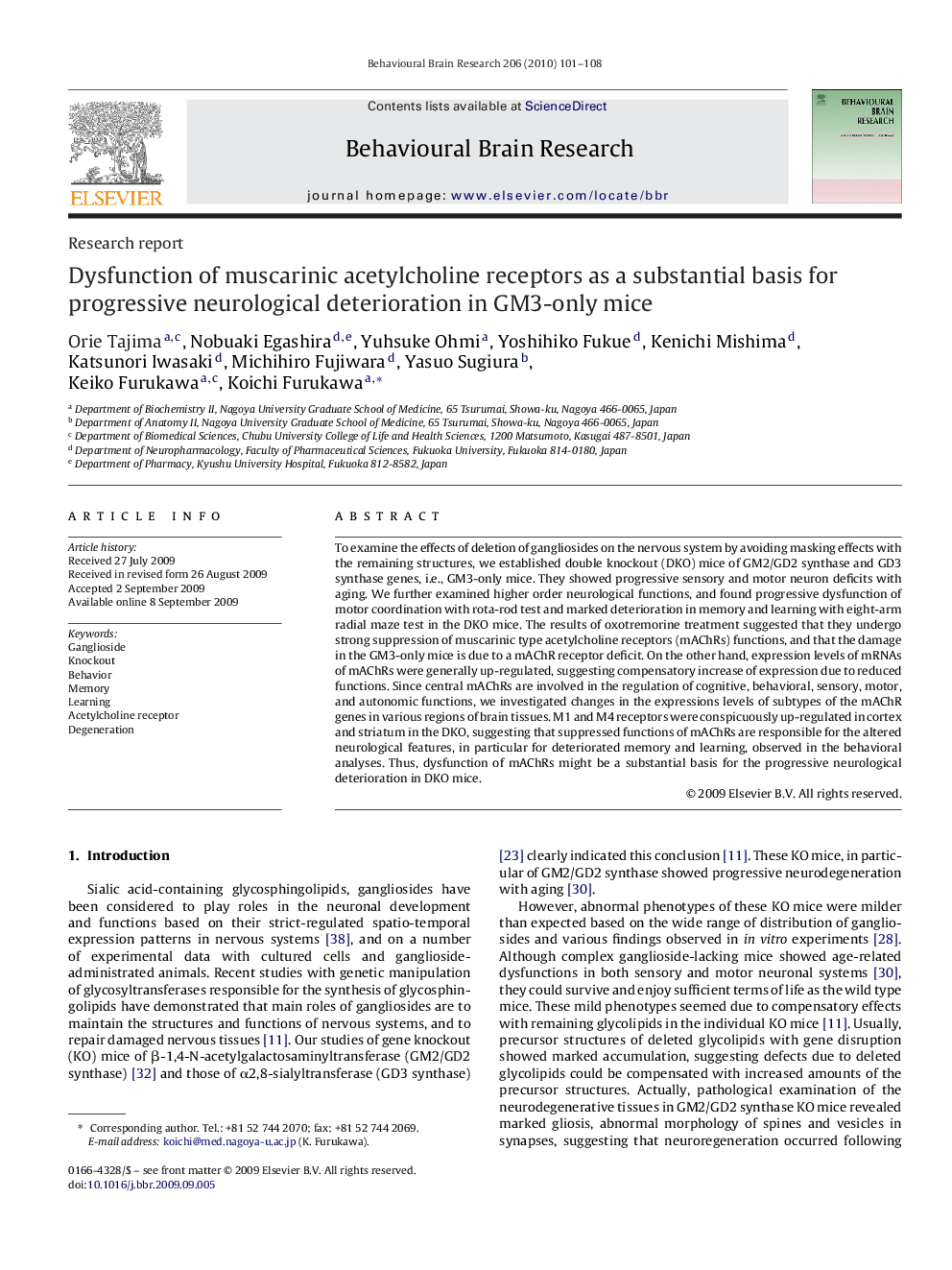| Article ID | Journal | Published Year | Pages | File Type |
|---|---|---|---|---|
| 4314583 | Behavioural Brain Research | 2010 | 8 Pages |
To examine the effects of deletion of gangliosides on the nervous system by avoiding masking effects with the remaining structures, we established double knockout (DKO) mice of GM2/GD2 synthase and GD3 synthase genes, i.e., GM3-only mice. They showed progressive sensory and motor neuron deficits with aging. We further examined higher order neurological functions, and found progressive dysfunction of motor coordination with rota-rod test and marked deterioration in memory and learning with eight-arm radial maze test in the DKO mice. The results of oxotremorine treatment suggested that they undergo strong suppression of muscarinic type acetylcholine receptors (mAChRs) functions, and that the damage in the GM3-only mice is due to a mAChR receptor deficit. On the other hand, expression levels of mRNAs of mAChRs were generally up-regulated, suggesting compensatory increase of expression due to reduced functions. Since central mAChRs are involved in the regulation of cognitive, behavioral, sensory, motor, and autonomic functions, we investigated changes in the expressions levels of subtypes of the mAChR genes in various regions of brain tissues. M1 and M4 receptors were conspicuously up-regulated in cortex and striatum in the DKO, suggesting that suppressed functions of mAChRs are responsible for the altered neurological features, in particular for deteriorated memory and learning, observed in the behavioral analyses. Thus, dysfunction of mAChRs might be a substantial basis for the progressive neurological deterioration in DKO mice.
